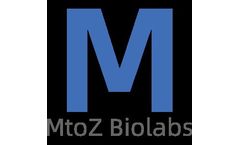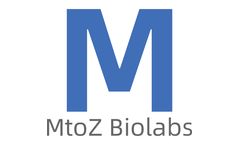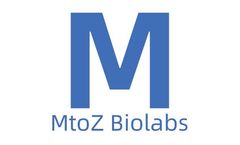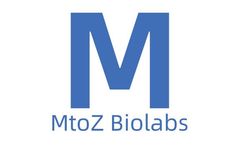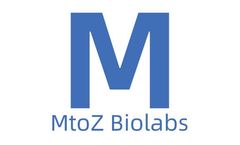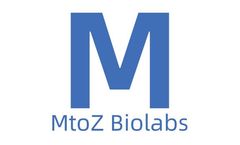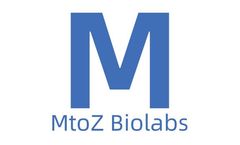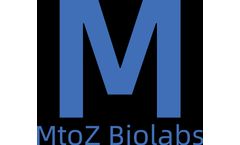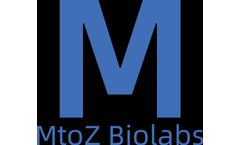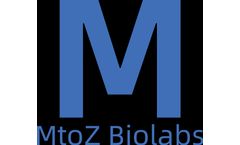Refine by
Autoimmune Articles & Analysis: Older
84 articles found
At present, recombinant protein drugs are widely used in various fields such as tumors, autoimmune diseases, metabolic diseases, geriatric diseases, and degenerative diseases.FcyR (Fc gamma receptors) are receptors expressed on the surface of immune cells, primarily responsible for recognizing and binding to the Fc (Fragment crystallizable region) part of antibodies. ...
This approach has opened new avenues for immunotherapy, providing hope for treating conditions like cancer, autoimmune disorders, and genetic diseases. Understanding Primary T Cells Primary T cells play a vital role in the body’s defense mechanism. ...
Antibody drugs have shown remarkable therapeutic effects in the treatment of various diseases, such as cancer, autoimmune diseases, inflammatory diseases, immune regulation, and ophthalmic diseases.In the production process of antibody drugs, the culture medium plays a very important role. ...
This process also aids in screening for monoclonal antibodies with high specificity and affinity, crucial for therapeutic applications in oncology, infectious diseases, and autoimmune disorders. 4. Glycan-Based Drug Discovery The study of glycan structures has led to the discovery of novel drug candidates targeting glycan-related pathways. ...
Conditions such as diabetes and autoimmune disorders can affect the health of the cornea and, by extension, the epithelial cells. ...
They play a crucial role in the development of diagnostic kits for diseases such as HIV, hepatitis, and various autoimmune disorders. Research and Development Synthetic peptides are invaluable in research settings for studying receptor interactions, enzyme activities, and signal transduction pathways. ...
They have shown great potential in treating various diseases, such as cancer, autoimmune diseases, infectious diseases, and metabolic disorders. However, to ensure the safety and efficacy of these drugs, strict quality control and characterization are necessary. ...
Antibody drugs have shown significant therapeutic effects in the treatment of various diseases such as cancer, autoimmune diseases, inflammatory diseases, immune regulation and ophthalmic diseases.Analytical Ultracentrifugation (AUC) technology has a wide range of applications in the research and development of antibody drugs. ...
Currently, protein drugs are widely used in various fields, including cancer, autoimmune diseases, metabolic diseases, geriatric diseases, and degenerative diseases.In the process of preparing and using recombinant protein drugs, protein concentration analysis is an essential step. ...
In pathological states, changes in sialic acid proteins are associated with the development of various diseases, such as cancer, infectious diseases and autoimmune diseases. For instance, in certain cancers, abnormal expression of sialic acid proteins may promote the invasiveness and metastatic ability of tumor cells.Methods for Detecting Sialic Acid ProteinsDetection of sialic ...
Antibody drugs, as a breakthrough in biotechnology, are now widely used in the treatment of various diseases, including cancer, autoimmune diseases, and infectious diseases. These drugs are usually precisely designed protein molecules that can specifically bind to targets in the human body, such as specific molecules on pathogens or diseased cells, thereby guiding the attack of ...
Its ability to influence the immune system also makes it a potential player in autoimmune disease treatment. By modulating inflammation, it could help restore balance in conditions like multiple sclerosis or rheumatoid arthritis. ...
Currently, peptide drugs are widely used in the diagnosis and treatment of tumors, autoimmune diseases, certain cardiovascular diseases, diabetes, etc., with broad application prospects. ...
Currently, peptide drugs are widely used in the diagnosis and treatment of tumors, autoimmune diseases, and certain cardiovascular diseases and diabetes, with broad application prospects.Analytical Ultracentrifugation (AUC) has a wide range of applications in peptide drug research and development. ...
This test is commonly used to monitor a patient's immune response to biological agents or other drugs, especially in the treatment of chronic diseases such as autoimmune diseases, certain cancers, and inflammatory diseases. The principle of drug antibody testing is based on the recognition and response of the immune system to drug molecules. ...
Th17 cells: biology, pathogenesis of autoimmune and inflammatory diseases, and therapeutic strategies. The American journal of pathology, 181(1), 8-18. ...
The development of monoclonal antibodies (mAbs) has completely transformed the field of medicine, providing targeted antidotes against a wide range of diseases, including cancer, autoimmune and infectious diseases. These therapeutic antibodies aim to specifically target antigens on the surface of cells and bind to them, leading to acidic reactions that result in the destruction ...
These engineered antibodies have become invaluable tools in the fight against a wide range of diseases, from cancer and autoimmune disorders to infectious diseases and neurological conditions. ...
Abstract Background: Rheumatoid arthritis (RA) is a systemic autoimmune disease characterized by chronic inflammation of synovial joints. ...
Assessment of C-peptide levels can identify individuals at risk for or with type 1 diabetes with residual β-cell function in whom β cell-sparing interventions can be evaluated, and can aid in distinguishing type 2 diabetes from Latent Autoimmune Diabetes in Adults and late-onset type 1 diabetes. To facilitate C-peptide testing, we describe a quantitative point-of-care ...

